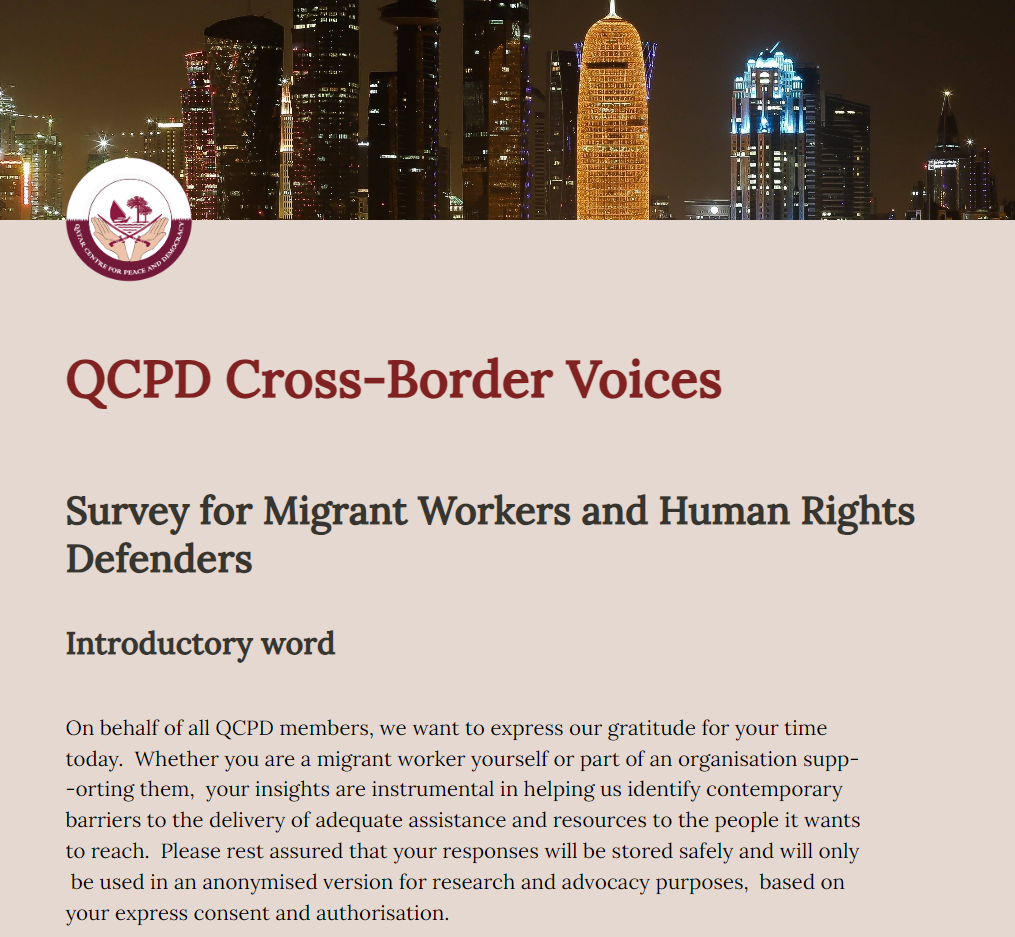
The Hidden Workforce Behind Qatar’s Economic Boom ?
Over 2 million migrant workers have been the driving force behind Qatar’s meteoric rise as a global economic hub. From towering skyscrapers to world-class stadiums, their hard work has shaped Qatar’s modern infrastructure. Yet, behind every construction project lies a story of sacrifice—one of long hours, extreme conditions, and a fight for basic rights.
Building Qatar’s Future
Migrant labor has been at the core of Qatar’s growth. The construction sector, in particular, has relied on workers from South Asia, Southeast Asia, and Africa to turn ambitious projects like the 2022 FIFA World Cup stadiums into reality. Take Suman Miah, a 34-year-old construction worker from Bangladesh .Suman died on 29 April 2020, after completing a long shift in temperatures that reached 38°C. His tragic story is just one of many from a workforce that has powered Qatar’s skyline.
But it’s not just construction—service industries like hospitality, retail, and domestic work depend heavily on migrant workers, often invisible in the narrative of Qatar’s prosperity.
The Price of Progress
While Qatar’s booming oil and gas industry has funded much of its economic growth, the demand for cheap labor has fueled its expansion into other sectors. This has come at a high human cost. Migrant workers often face unpaid wages, unsafe working conditions, and poor living conditions. The Kafala system, which bound workers to their employers, restricted their freedom and led to exploitation.
In recent years, Qatar has begun addressing these issues. The abolition of the Kafala system and the introduction of wage protection programs are steps in the right direction. However, implementation remains inconsistent, and many workers still report abuses.

Qatar’s progress depends on more than just economic growth—it requires fairness and dignity for the workers who built it. While reforms have been introduced, they need to be consistently enforced to ensure that migrant laborers are not left behind in the nation’s quest for success.
Qatar’s future should reflect the balance between social justice and economic growth. The workers who have helped shape this nation deserve a future where they are valued, protected, and treated with dignity.

This survey is part of QCPD’s commitment to placing affected persons, survivors, and front-line defenders at the centre of everything we do. Your experience helps us identify what is missing, what is working, and what must be done differently to truly meet people’s needs. Instead of duplicating efforts, QCPD seeks to listen closely and contribute meaningfully — by learning from you and from what other institutions have already built. Your voices guide us in designing better support, filling the gaps, and doing better where it matters most. This process, rooted in inclusion, participation, and respect will help shape more just and effective responses for migrant workers across borders and ensure that lived reality informs the policies and practices.